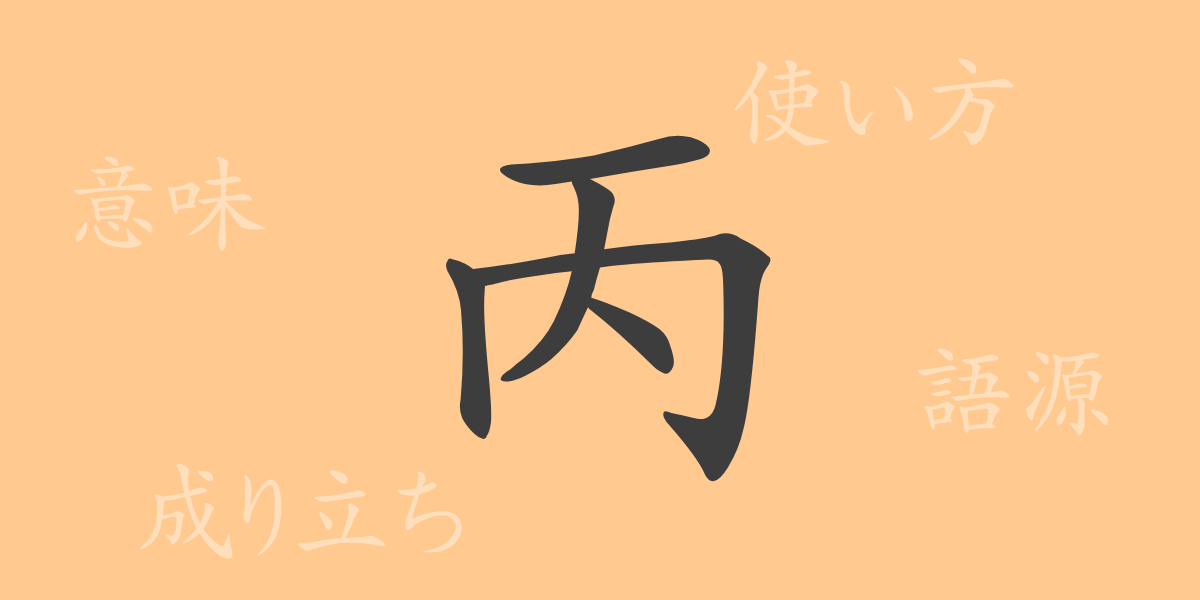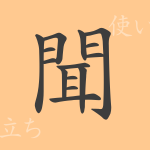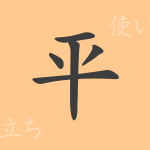In Japanese written language, many kanji (Chinese characters) are used, and among them, “丙” (hei) is particularly intriguing. Although you might not encounter it frequently in daily life, it is a character deeply rooted in Japanese culture and language. This article will focus on the world of the kanji “丙” (hei), exploring its origins, meanings, usages, readings, and the idiomatic expressions and proverbs in which it is used.
The Origin of 丙 (hei)
“丙” (hei) is one of the ancient Chinese Heavenly Stems (tenkan), and it is believed to have derived from a pictogram representing fire. The Heavenly Stems, also known as the Ten Stems, have been used in ancient calendars, directions, and the Five Elements philosophy. “丙” (hei) is positioned third among these Ten Stems and is associated with the nature of fire, symbolizing brightness and heat.
Meaning and Usage of 丙 (hei)
“丙” (hei) primarily means “third,” “symbol of fire,” and “bright.” It is also used to denote years, particularly in the traditional lunar calendar, where it appears as one of the 60-year cycle’s stems. Additionally, “丙” (hei) is used to indicate quality or rank, appearing in expressions such as “甲乙丙丁” (kou-otsu-hei-tei), which denote rankings.
Reading, Stroke Count, and Radical of 丙 (hei)
“丙” (hei) has specific readings in Japanese.
- Reading: On’yomi (音読み): “ヘイ” (hei), Kun’yomi (訓読み): None
- Stroke count: 5 strokes
- Radical: 一部首 (ichibushu) (one radical)
Idioms, Proverbs, and Expressions Using 丙 (hei)
There are many idioms, proverbs, and expressions that include “丙” (hei). These expressions demonstrate the role “丙” (hei) plays in the Japanese language.
For example, the idiom “丙午” (heiuma) refers to the 33rd year in the 60-year cycle. Similarly, “丙辰” (heishin) means the 23rd year in the cycle, and “丙申” (heishin) indicates the 51st year. All these require knowledge of the Chinese zodiac.
Additionally, the idiom “甲乙丙丁” (kou-otsu-hei-tei) is used to denote the first to fourth ranks or qualities. The term “丙種” (heishu) signifies a third-grade quality, meaning slightly below average.
Conclusion on 丙 (hei)
Throughout this article, we have explored the diverse meanings and usages of the kanji “丙” (hei). In Japanese culture and language, “丙” (hei) has played an important role since ancient times and is used in various contexts. While you might not often see “丙” (hei) in everyday life, it is one of the fascinating kanji that highlights the depth of the language. Next time you encounter “丙” (hei), it might be interesting to ponder its background and meanings.

























